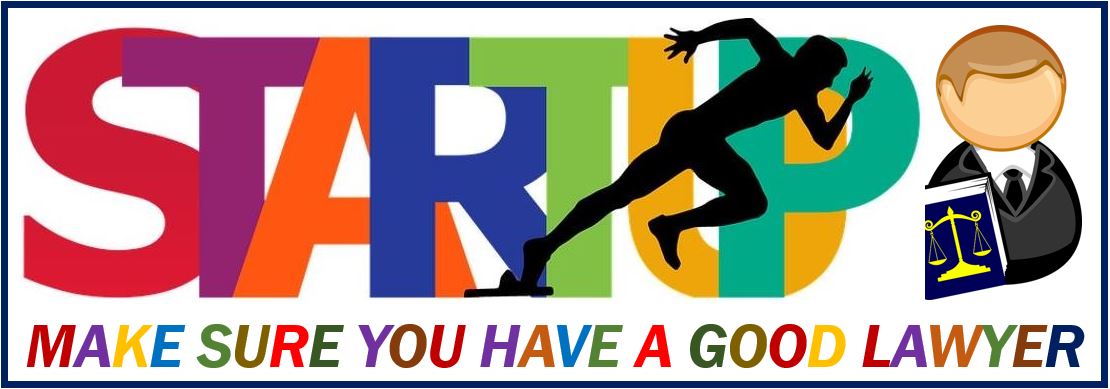
When starting up a business, big or small, you will need two professionals early on: an accountant and a lawyer. The grounds for hiring an accountant would be pretty obvious–you need somebody that will allow you to set up your “chart of accounts,” examine your numbers occasionally, and prepare all your crucial federal, state, and local tax yields.
The explanation for hiring a company attorney might not, however, be so apparent. A fantastic business lawyer will offer vital assistance in almost every element of your business, from essential ethics compliance and copyright and trademark information to appropriate small business incorporation, lawsuits, and liability. First, a few general rules about working with attorneys:
If you’re being sued, then it’s too late
Most smaller businesses defer hiring legal counsel until the sheriff is standing at the door, functioning them with a summons—terrible mistake. The time to hook up with a fantastic organization lawyer is until you’re sued.
Once you got summons and complaints, it’s too late–the issue has already occurred. It’s just a problem of how far you’ll have to pay for (in court expenses, lawyers’ fees, obligations, and additional liabilities) to find the situation resolved.
America’s judicial system will be much like a Roach Motel–it’s easy to get into court, but somewhat hard to move outside by the time you have been “trapped.” Most lawyers will agree that while nobody likes to cover lawyers’ fees for whatever, the cost of lawyers that will help you keep out of trouble is merely a small fraction compared to if they get you out of trouble once it’s happened.

Large firm or tiny firm?
Generally speaking, the more expensive the lawyer, the more significant the overhead, hence the higher the hourly rates you’ll be expected to pay for. Still, larger firms have lots of advantages over smaller ones. In the last twenty years, lawyers have become incredibly technical. If you take advantage of a solo practitioner or small firm as your own lawyer(s), it’s likely that they won’t have all the relevant skills you may have to cultivate your business.
I don’t know of any Royal practitioner. Also, not many tiny firms (under ten attorneys ) that could handle your suits negotiate your rent of office or retail space document a trademark or patent or draft a software license arrangement, or counsel you about approving a tumultuous employee and manage your annual corporate meeting. Eventually, those”generalists” will have to refer you out to specialists, and you will find yourself working with two or three (and sometimes more) attorneys.
A dreadful letter from a”powerhouse” Law firm with offices in 30 states is a lot more intimidating than an awful letter from a solo professional who is not admitted to practice in the defendant’s state. Additionally, being correlated with a large, well-established law firm might have subjective advantages –they may be inclined to present one to financing sources or use their own name as a benchmark when seeking partnership structures.
Undoubtedly in the event, you run a fast-growing business company that intends to be for the public (or eventually planning to sell out to a big company), you would want to operate with attorneys whose names are recognized in the investment banking and venture capital communities.
Why lawyers are needed for every business
Much like doctors, lawyers are becoming increasingly specialized. Somebody who does mostly fails, home closings as well as other”non-business” matters might not really be a fantastic fit for the company. At the lowest, you’ll need these sets of skills. The more skills live in the identical human being, the better!
1. Contracts
You’ll need a lawyer who can comprehend your business quickly; prepare the typical form contracts you will need with clients, customers, and providers; and help you react to contracts which other people would want you to sign.
2. Business organizations
You’ll need a lawyer who is able to help you decide whether a corporation or limited liability company (LLC) may be the easiest way to organize your company and prepare the essential paperwork.
3. Real estate
Leases of industrial space–such as offices and shops –are exceptionally complex and are hailed continuously to benefit the landlord. Because they have a tendency to be”printed form” documents, you may well be tempted to think they are not negotiable. Maybe not too. Your lawyer needs to have a regular”tenant’s addendum,” containing provisions which assist you, that may be inserted into the printed form lease record.
4. Taxes and permits
Even though your accountant will prepare and file your business tax statements annually, your lawyer should know just how to register your business for state and federal tax identification numbers, and also understand the tax ramifications of their primary business arrangements in which your company will employ.
5. Intellectual property
If you are in a media, designing, or alternative creative-type business enterprise, it is undoubtedly a”and” if a lawyer can allow you to register your services and products for national trademark and copyright protection. Ordinarily, though, all these activities have been performed by specialists who do nothing but”intellectual property” work. In case the Law firm says they specialize in tiny organizations,” then they should have a close relationship with one or more intellectual property.
About the Contributor

Patrick Monahan is the managing partner of Monahan Law Firm, PLC. Patrick began his legal career practicing real estate, construction, and general business litigation.
Over the years, Monahan Law Firm, PLC has expanded to serve clients in domestic relations, personal injury, and estate planning.
Video – What is a startup?
Interesting related article: “What is a Lawsuit?“

